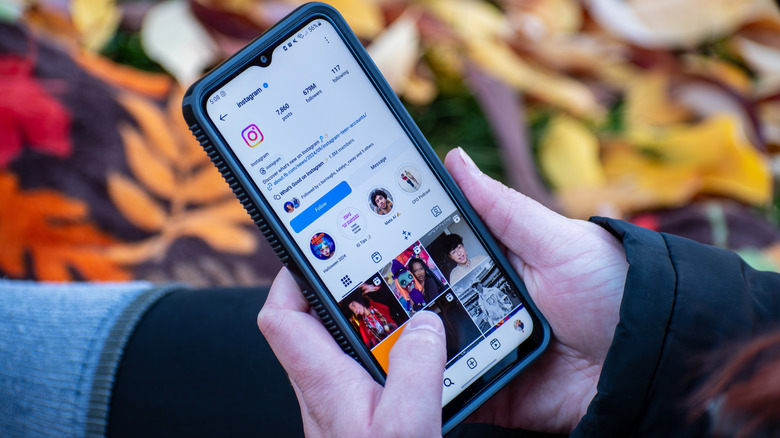You've Been Warned: This Social Media Scam Is Too Good To Be True
You are scrolling through Instagram when you get a message from a brand that promises cash, paid advertisement, or even an ambassador role. The brand then attaches a link for you to sign up. Scammers make these offers look both urgent and professional, with TechRadar reporting that they often copy real login pages in order to steal access codes, so that even if the logo appears correct, the email address or social media handle may be off by a letter. Unfortunately, this is the exact modus operandi of Instagram "sponsorship" scams, which appeared in Norton's July 2025 list of 17 notable Instagram scams to avoid.
Norton noted that oftentimes an individual will pose as a fake brand that might offer free products, photo shoots, VIP events, quick cash, or cheap trips in exchange for promoting their fake brand. These promises are designed to make you drop your guard so that you will then follow their instructions. However, in reality, real brands will not ask you for a fee to begin a partnership, or push you to a payment page right away. Ultimately, the aim of this scam is to get your money and personal information. In fact, any form that asks for your Social Security number, card details, or an up-front fee is a scam, not a job offer. Other scams like this include AI-powered financial scams and even a social security scam that tricks you into fake investments.
Protecting yourself from Instagram sponsorship scams
Scammers most often use direct messages to push fake "brand ambassador" agreements because it works. This is why you should treat any unsolicited message or offer that sounds too good to be true as a red flag. Norton's Instagram scam guide says that impostors will most likely try to get you to click on a link, switch to another app, or pay a "shipping" or "collaboration" fee up front, which are telling signs that the offer is fake. Keep an eye out for slightly misspelled usernames of known brands, accounts with few followers, accounts without verification, spelling errors, and links that don't match the company's website.
Consumer Reports recommends slowing down and checking the brand page yourself by contacting it through an official website or phone number in order to confirm if the sponsorship is real. You can also confirm if the social media account is real by scrolling to the bottom of the brand's official website — with most brands putting their social media links on their homepage. However, make sure to type the company's address into your browser yourself — not through a link sent to you — and make sure the email domain and contact details match. If it is a scam, report it and move on. Per Instagram's Help Center, you can report scams directly in the app by opening the profile or message, tapping the three dots icon, and selecting "Report" — remember to choose the reason as scam, fraud, or impersonation.

